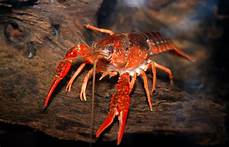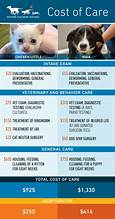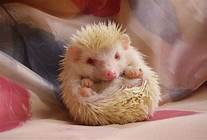What to Feed Pet Crayfish
Crayfish are omnivorous scavengers that will eat a wide variety of foods. In the wild, they feed on a variety of plants and animals, including algae, aquatic insects, worms, snails, and small fish. When kept as pets, crayfish can be fed a variety of commercially prepared foods, as well as some live foods.

Commercial Foods
There are a variety of commercial foods available for crayfish. These foods are typically made from a mixture of fish meal, shrimp meal, and other ingredients. Some common brands of crayfish food include:
- Hikari Crab Cuisine
- Tetra ReptoMin
- Fluval Bug Bites
- Wardley Shrimp Pellets
- Omega One Shrimp Flakes
When choosing a commercial food for your crayfish, look for one that is high in protein and low in carbohydrates. Avoid foods that contain artificial colors or flavors.
Live Foods
In addition to commercial foods, crayfish can also be fed a variety of live foods. These foods can provide your crayfish with a more natural diet and can help to keep them active and healthy. Some common live foods for crayfish include:
- Brine shrimp
- Daphnia
- Mysis shrimp
- Bloodworms
- Blackworms
- Mealworms
- Waxworms
When feeding your crayfish live foods, be sure to remove any uneaten food from the tank after a few hours. Uneaten food can quickly foul the water and lead to health problems for your crayfish.
Vegetables
Crayfish can also eat a variety of vegetables. Some common vegetables that crayfish enjoy include:
- Lettuce
- Cabbage
- Spinach
- Carrot
- Zucchini
- Cucumber
- Peas
When feeding your crayfish vegetables, be sure to wash them thoroughly before offering them to your pet. Vegetables should be cut into small pieces so that your crayfish can easily eat them.
Feeding Schedule
Crayfish should be fed once or twice a day. The amount of food that you offer your crayfish will depend on its size and activity level. As a general rule of thumb, you should offer your crayfish about 2% of its body weight in food each day.
It is important to avoid overfeeding your crayfish. Overfeeding can lead to health problems, such as obesity and digestive problems. If you are unsure how much food to offer your crayfish, consult with a veterinarian.
Declaration: All article resources on this website, unless otherwise specified or labeled, are collected from online resources. If the content on this website infringes on the legitimate rights and interests of the original author, you can contact this website to delete it.




